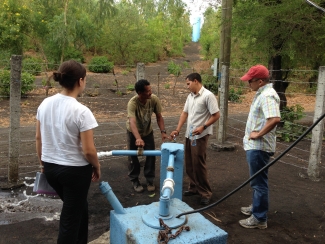Risk perception, choice of drinking water and water treatment: Evidence from Kenyan towns
This study used household survey data from four Kenyan towns to examine the effect of households' characteristics and risk perceptions on their decision to treat/filter water as well as on their choice of main drinking water source. Because the two decisions may be jointly made by the household, a seemingly unrelated bivariate probit model was estimated. It turned out that treating non-piped water and using piped water as a main drinking water source were substitutes.
